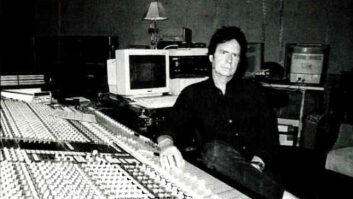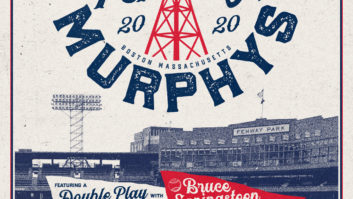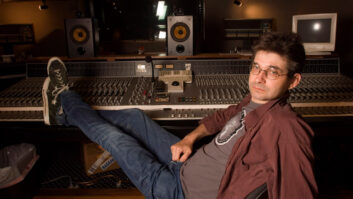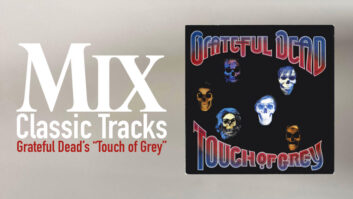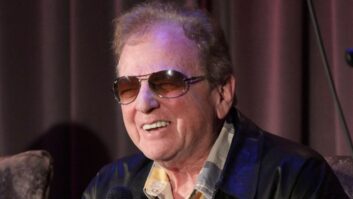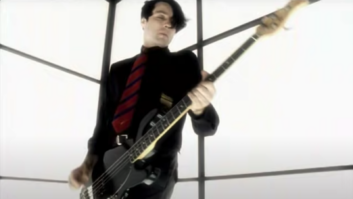
New York, NY (March 10, 2020) — Keith Olsen, the producer/engineer who arguably defined the sound of hard rock in the late Seventies and Eighties, has died. A six-time Grammy winner, Olsen produced more than 120 albums over the course of his career, with 39 going Gold (500,000 sold), 24 going platinum (1 million sold) and 14 going multi-platinum. In all, more than 125 million albums sold bear his name in the credits.
Born in Sioux Falls, South Dakota, Olsen first made his mark as the bassist of The Music Machine, best remembered for its 1966 Billboard Top-20 hit, “Talk Talk.” In the wake of that, Olsen teamed up with fellow University of Minnesota alum Curt Boettcher and the two began producing pop hits for the Association, Tommy Roe and others. Going out on his own in the early 1970s, Olsen founded his own production company, PogoLogo Productions, and signed a fledgling duo, Buckingham Nicks, whose sole album he produced for Polydor. The record flopped, but Olsen subsequently played it for Mick Fleetwood of Fleetwood Mac one day to illustrate his production skills. Instead, the drummer was taken by the musicianship, and soon Lindsay Buckingham and Stevie Nicks were members of Fleetwood Mac and Olsen was producing the group’s breakthrough, self-titled 1975 album, which proceeded to go 7x platinum on the back of hits like “Say You Love Me” and “Rhiannon.”
Over the years that followed, Olsen would work with Foreigner, Scorpions, Whitesnake, Rick Springfield, Ozzy Osbourne, Heart, REO Speedwagon, Pat Benatar, ELP, Journey, the Grateful Dead, Sammy Hagar, Jethro Tull, Joe Walsh, Bad Company, Santana, Kim Carnes, Night Ranger, Bob Weir, Saga, Eric Burdon, Eddie Money, Sheen Easton, Steve Perry, Loverboy, Lou Gramm, The Babys, Starship, .38 Special, Europe and many others. Olsen’s work was also evident on soundtracks for Eighties films such as Footloose, Vision Quest, Tron, Flashdance and Top Gun.
Throughout the era, Olsen’s production style evolved with the times, ensuring that his albums sounded current but also that they featured solid songwriting rather than let production carry the tracks. Rick Springfield, remembering Olsen on Twitter, recounted, “He could be a bit of a pistol in the studio, but that was part of his talent. Sticking to his guns when some whiny artist (me) would say, ‘I don’t think that works.’ He didn’t produce all those hits for all those musicians for no reason. He had a golden ear and helped so many people reach their potential. I remember playing him my demos and he picked ‘Jessie’s Girl’ out of a batch of 15 songs and said ‘This is a hit.’ I doubted him and thought there were better songs in my demo reel. Proof right there of his gift.”
In the mid-90s, Olsen switched focus work on developing mixes for then-nascent surround sound technology for the Kore Group record label. In 1999, he joined Mackie Designs (now Loud Audio) and two years later was promoted to corporate director for global recording product and market development, giving him responsibility over an international market development team that focused on the recording, post-production and broadcast markets. Olsen left the company in 2003, when Mackie Designs was bought out and renamed Loud Technologies.
In subsequent years, Olsen co-founded acoustic treatment manufacturer Sonitus USA with Anthony Grimani, returned to producing; and also became a vocal member of the Recording Academy’s Producers and Engineers Wing.
